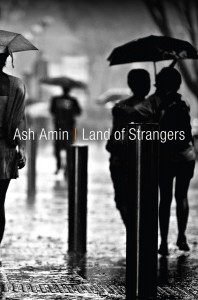“I wanted to look for a politics for the stranger, and of the stranger, which didn’t require of strangers to become friends with each other or with the host community. I felt that that kind of politics was just too narrow and impossible quite frankly in a very cosmopolitan age.”
My guest in this podcast is Ash Amin, who until last year was professor of geography at the University of Durham, and now holds the 1931 chair in geography at Cambridge. I met Ash Amin in Cambridge recently to talk about his latest book, Land of Strangers.
Most modern Western societies are nothing more than a collection of strangers, Amin maintains; public and political awareness of the stranger has become acute: nobody wants the immigrant or the asylum seeker. The stranger has become a figure of fear and hate, to be contained and disciplined.
Land of Strangers argues that humanist policies of inclusiveness are not up to the demands of our extraordinarily cosmopolitan age. The book instead calls for a different kind of politics of togetherness, one in which a certain kind of “civility of indifference to difference” can be cultivated. And it looks at how this attitude might play out in reality at the level of the state but also in our habits of daily living, through which we might become unperturbed by the presence of the stranger in our midst – in other words, ways in which a different politics of the stranger may be forged.
To listen to the complete interview, click here. To listen to extracts, choose from the links below:
1. In the introduction, Ash Amin talks of the “urgency of the political moment”. I began by asking him about the timeliness of Land of Strangers. To listen, click here.
2. “Aversion” is frequently cited in the book as a pervasive attitude to strangers. I asked Ash Amin to expand on this here.
3. The metaphor of the drawbridge also occurs more than once; keeping out those that society deems undesirable. How does it operate? Click here.
4. Land of Strangers is a work of analysis but also a polemic. I asked why. Click here.
5. Is “stranger” a rather shifting term? Click here
6. Was it 9/11 which marked the radical shift from the multicultural politics of the 1990s to the new era in which we find ourselves? Click here.
7. If the prevailing humanist discourse is inadequate to create a new kind of politics of integration, as Land of Strangers argues, what other options are available? Click here.
8. Does “phenotypical racism” as described in the book offer a highly pessimistic analysis of the human condition? Click here.
9. Is a return to economic stability a necessary condition for the kind of politics of integration that Ash Amin wishes to see? Click here.
10. How big an obstacle is the lack of a compelling counter-narrative to the neo-liberal/catastrophist one? Click here.


Pingback: Telescopic Urbanism and the Poor « cities@manchester